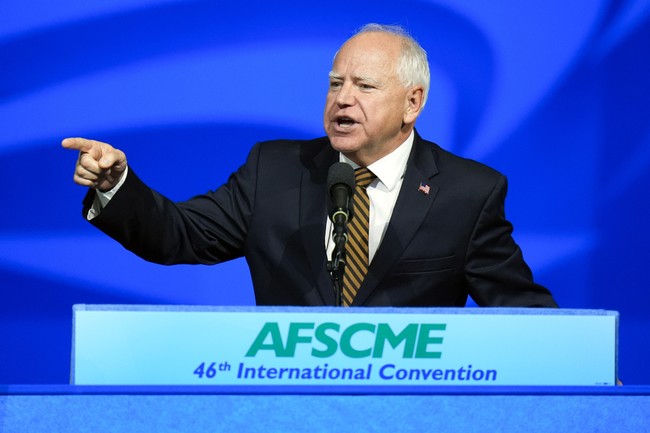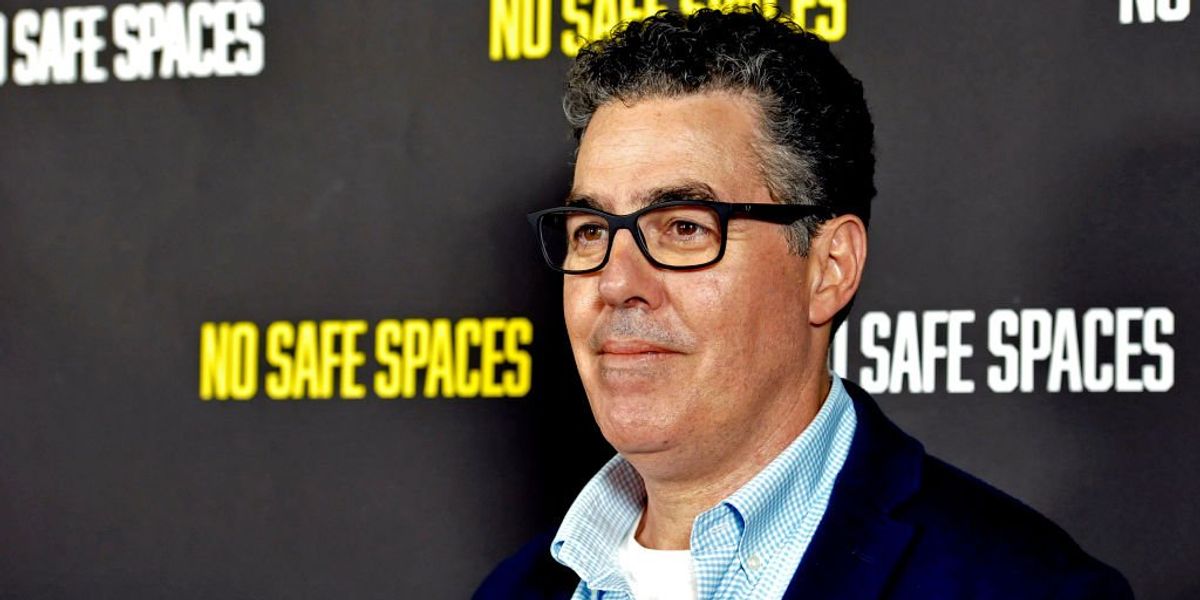Does Tim Walz see communism as a plus or a minus for China? I’ve written about this before and it’s actually hard to tell. On the one hand, Walz really loves China and has been there dozens of times after forming a company to take students there. On the other hand, he has been critical of China’s government at times, backing Hong Kong’s bid for democracy.
The Washington Free Beacon has uncovered a newspaper article from 1991, just a couple years after Walz’ first visit to China. The article describes what he taught his US students about China. His description of communism leaves a lot to be desired.
As a high school teacher in the 1990s, Democratic vice presidential candidate and Minnesota governor Tim Walz appeared to extol life under Chinese communism, telling his students that it is a system in which “everyone shares” and gets free food and housing.
“It means that everyone is the same and everyone shares,” Walz said during a lesson on China’s communist system in November 1991. “The doctor and the construction worker make the same. The Chinese government and the place they work for provide housing and 14 kg or about 30 pounds of rice per month. They get food and housing.”…
Michael Sobolik, a China expert and the author of Countering China’s Great Game, said Walz’s comments to students were a “shockingly naïve description of the Chinese Communist Party’s rule.”
“American students need to learn the horrific truths of communism and the horrors this dangerous ideology has wrought over the past century,” said Sobolik. “Gov. Walz should clarify his comments and share his impression of communism in 2024.”
Teaching high school students that communism means “everyone shares” is reductive to the point of absurdity. Maybe if this were a lesson for 3rd graders I could see it but even then the alternative would be something like democracy means everyone gets a say. The compare and contrast of those two statements could provide a very basic lesson for younger kids.
But for high school kids you expect a lot more. Did Walz offer any comments about the downside of communism in China or elsewhere? About state control of everything from the media to major corporations? He did mention the one-child policy but only that those who violated it would have to pay a tax. No mention of forced abortions.
A political science professor named Paul Musgrave seems to have been the first person to uncover several early articles about Walz. He wrote about them for his own Substack site and also for Foreign Policy. The FP piece seems to have been written as a defense of Walz and doesn’t mention his comments about communism. Instead it focuses on his implied criticisms of the Chinese government.
The problem with China, Walz observed, wasn’t its people but the government. “If they had the proper leadership, there are no limits on what [Chinese people] could accomplish,” he told the Record…
Walz viewed China’s population as eager to leave its Communist-run society. “Many of the students want to come to America to study,” he told the Record. “They don’t feel there is much opportunity for them in China.” He mentioned that during one of his trips to nearby Macau, then still a Portuguese colony, the government granted amnesty to Chinese immigrants living in the colony illegally, triggering a stampede by tens of thousands of Chinese who wanted residency in the West.
Recognizing that people were eager to leave China seems like it should lead naturally to a description of what it is about China that people were eager to leave behind. I don’t think communism means sharing really explains that very well.
Why is it so hard for Walz to just directly criticize communism? I can only see two options. The first is that he didn’t want to spoil his chance to return there often over the next several years by criticizing the government too harshly. The other option is that he didn’t see communism as the problem, just this particular communist government in China.
To put it another way, it’s not clear if Walz is downplaying his criticism of communism to be diplomatic or if he believes real communism has never been tried. The left has been working hard to assure us it’s the former but it’s surprisingly hard to tell from his comments. Specifically, his description of communism as sharing seems to go beyond being diplomatic and crosses the line into being a kind of naïve ideologue.
Read the full article here




![Democratic Party Calls To Reelect Biden In Just Released Party Platform Document [VIDEOS] Democratic Party Calls To Reelect Biden In Just Released Party Platform Document [VIDEOS]](https://www.rvmnews.com/wp-content/uploads/2024/06/2024.06.06-11.43-rvmnews-6661a0ce5c441.jpg)


![Furious Celebrities Rip Newsom, Bass Over LA Wildfire Response Chaos [WATCH] Furious Celebrities Rip Newsom, Bass Over LA Wildfire Response Chaos [WATCH]](https://www.lifezette.com/wp-content/uploads/2025/01/2025.01.09-05.18-lifezette-678004c9e71c5.jpg)

